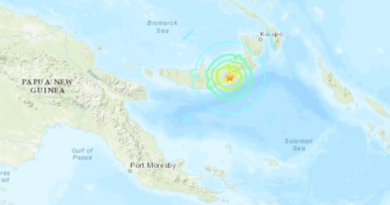Chalmers issues warning on economic risks due to oil price surge driven by conflict in the Middle East
The global oil market has witnessed a significant increase in prices, with Brent crude oil now trading at approximately $77 per barrel—a 7 percent rise in just over a week.
As tensions escalate in the Middle East, Treasurer Jim Chalmers has cautioned about the growing human and economic impacts of the situation, specifically highlighting the risks posed by the surging oil prices.
“We are primarily concerned about the human toll of the conflict in the Middle East, but we cannot overlook the economic consequences,” stated Chalmers.
With global oil prices spiking, Brent crude oil is currently trading around $77 a barrel—a 7 percent increase in just over a week. Despite being 11 percent lower than a year ago, this recent surge threatens to contribute to global economic uncertainty.
Chalmers outlined the potential effects of sustained high oil prices in Australia.
“For every 10 percent sustained rise in the price of Brent oil, it reduces our GDP by about 0.1 percent and adds roughly 0.4 percentage points to our Consumer Price Index,” he explained.
The heightened cost of oil could drive up inflation, adding further strain on Australian households and businesses already grappling with cost-of-living challenges.
The situation has broader implications for the global economy.
“Almost a third of the world’s oil comes from the Gulf,” Chalmers emphasized, underscoring the region’s crucial role in upholding global supply chains. Any disruption could have cascading effects on economies worldwide, including Australia.
The volatility in oil prices coincides with other global economic concerns. The Chinese economy, while displaying some signs of stabilization, remains a source of apprehension, while developments in the U.S. contribute to the unpredictability.
“Global economic uncertainty impacts Australians, and we’re witnessing that in various ways,” Chalmers noted.
Australia, like many leading nations, has been advocating for a ceasefire in the region.
According to Reuters, oil prices surged last week, marking their most significant weekly gains in over a year due to fears of a broader conflict in the Middle East. Brent crude climbed 43 cents to $78.05 per barrel, while U.S. West Texas Intermediate crude rose by 67 cents to $74.38.
This escalation followed Israel’s pledge to retaliate against Iran for missile attacks following the assassination of a Hezbollah leader.
However, U.S. President Joe Biden urged Israel to reconsider targeting Iranian oil facilities, leading to some price fluctuations.
Weekly gains for Brent and WTI exceeded 8 percent and 9 percent, respectively, the highest since early 2023.





